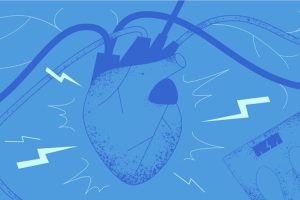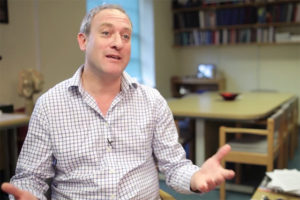Myocardial Infarction
Cardiologist Maarten Simoons on symptoms of a heart attack, prevention of the disease, and life-saving volunte...

In November Stroke published an article called “Impact of Bilingualism on Cognitive Outcome After Stroke”. We asked two of the authors, Dr. Amulya Rajan from ARDSI Hyderabad Deccan Chapter and Dr. Suvarna Alladi from Nizam’s Institute of Medical Sciences, to comment on this study.
In a new study conducted in Hyderabad, India, it was found that patients who spoke more than one language were twice as likely to have a better outcome after stroke than those who didn’t. The study conducted at the Nizam’sInstitute of Medical Sciences, a teaching hospital in Hyderabad reviewed the records of 608 patients from its stroke registry, more than half of who were bilingual. Results showed that about 40 percent of bilinguals had normal cognitive functions post-stroke, in comparison to only around 20 percent of monolinguals. Further bilinguals outperformed their counterparts on tests measuring attention, and organization and retrieval of information. It was found that this positive association was independent of other possible intervening factors such as cardiovascular risk factors and the age of the patients. Researchers attribute this advantage to the ability of the bilingual brain to switch between two languages with ease.
The city of Hyderabad in India provides a fine milieu for a study of this kind, with most of its residents speaking more than one language from a very young age. With much world research being conducted in the area, and the ready availability of rich data, it was a research question that was both automatic and relevant. A pioneering study from Bialystok in Canada paved the way for studying the relationship between bilingualism and dementia. Previous research in this area conducted by Bialystok in Canada and subsequently by the study team in Hyderabad, showed that bilingual AD dementia patients had a delay in the age of disease onset by almost 4-5 years when compared to their monolingual counterparts. This effect was also observed in other dementia subtypes. Owing to the availability of a large stroke registry in the same hospital, DrAlladi found herself also interested in exploring the effect of bilingualism on this group. The advantage to studying the relationship between bilingualism in India, is that factors such as immigration, education and socio-economic status are not significant confounds.
With much interest being garnered world-over on lifecourse factors that may help protect from dementia, phenomena such as bilingualism which can be seen as one of the primary cultural/environmental factors afford much promise in research. Research of this kind also paves the path for the exploration of new areas which may at first seem less relevant to health and disease.

Cardiologist Maarten Simoons on symptoms of a heart attack, prevention of the disease, and life-saving volunte...

Neuroscientist Neil Burgess on the origin of neuroscience, drugs in clinical psychology, and the revolution in...

Neuroscientist Diana Omigie on what musical taste is, how our musical preferences are formed and what can chan...